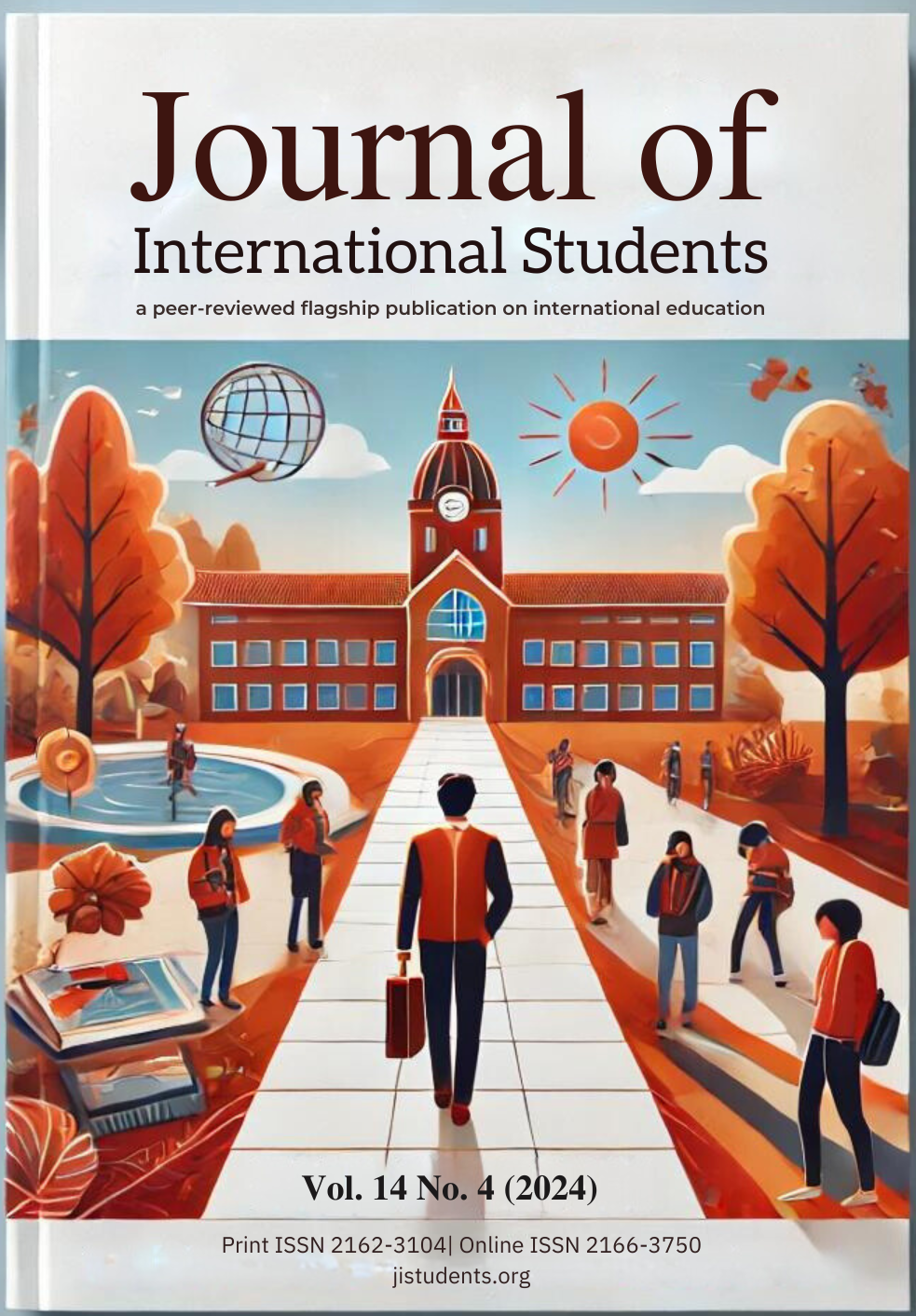Subjective well-being of international students
Interplay of perceived discrimination, health status, and community satisfaction
DOI:
https://doi.org/10.32674/jis.v14i4.6480Keywords:
community satisfaction, perceived discrimination, perceived health status, subjective well-beingAbstract
Students’ adjustment and well-being in a cross-cultural context have become important topics in international higher education studies. This study explored the psychological mechanism underlying the impact of perceived discrimination and perceived health status on the subjective well-being of international students. The responses of 358 international students were analyzed using the survey datasets. The results indicated that the perceived health status of international students had a significantly positive impact on their subjective well-being. Conversely, perceived discrimination had a negative impact on subjective well-being and community satisfaction. Notably, community satisfaction mediated the relationship between perceived discrimination and subjective well-being. Furthermore, the results revealed that the effect of community satisfaction on subjective well-being varied between the Asian and non-Asian students. These findings can assist higher education program providers in developing a community-oriented support system for students striving to adjust to cross-cultural environments.
Downloads
Published
Issue
Section
Categories
License
Copyright (c) 2024 Journal of International Students

This work is licensed under a Creative Commons Attribution-NonCommercial-NoDerivatives 4.0 International License.
All published articles are licensed under a Creative Commons Attribution-NonCommercial-NoDerivs 4.0 Unported License.















